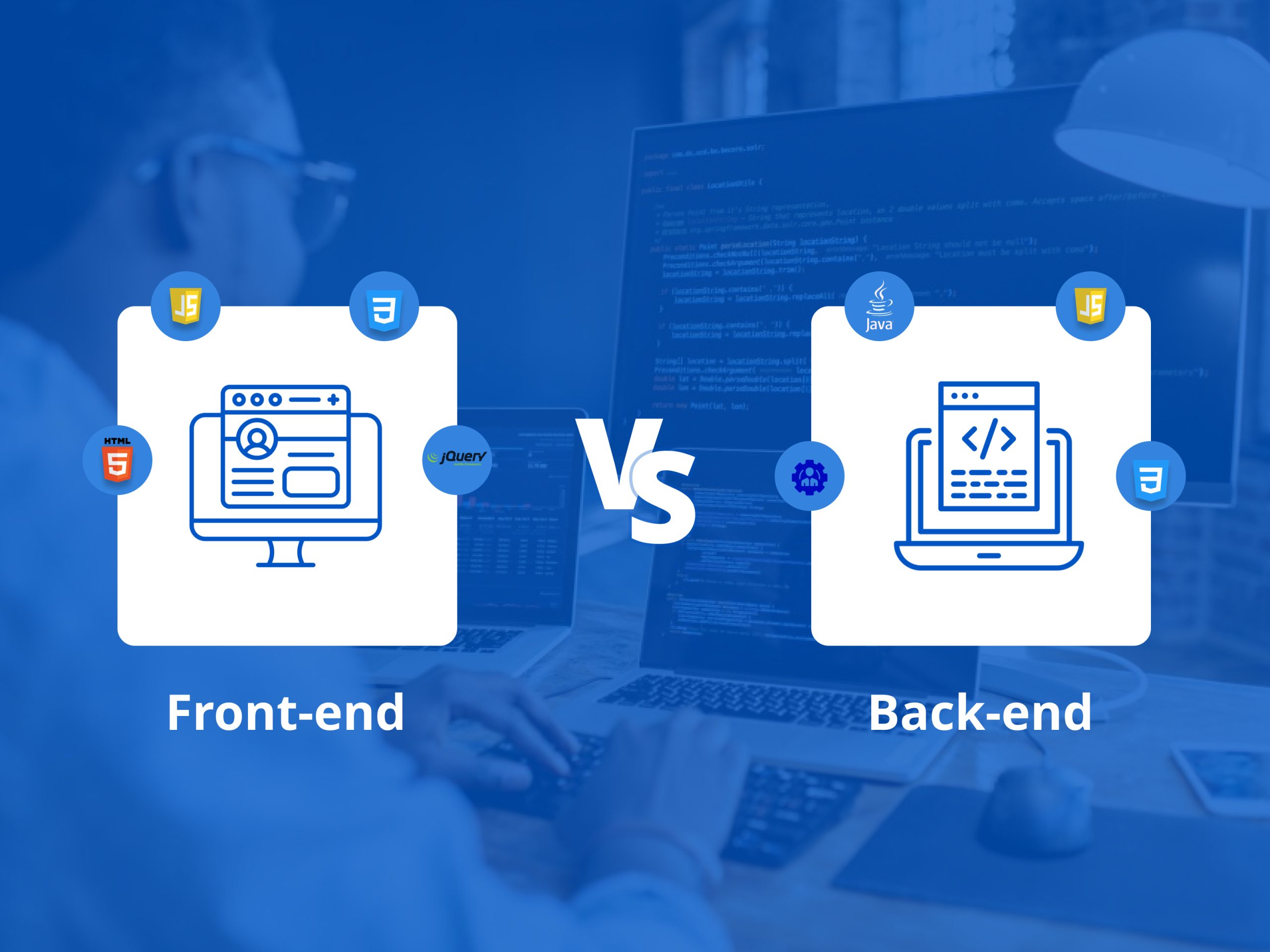When securing sensitive information, organizations cannot afford to take chances. This is where the importance of expertise in security and cryptography comes into play, especially when hiring a Java developer. Java is a popular programming language for developing a wide range of applications, including those dealing with confidential information.
Hiring a Java developer with a solid understanding of security and cryptography concepts is crucial to protect your organization’s sensitive data.
This blog post explains why expertise in security and cryptography is essential when hiring a Java developer.
Table of Contents
Why are Security and Cryptography Important in Java Development?
Security and cryptography are essential components in Java development for several reasons. Let’s discuss them in detail:
Importance of Security in Java Development
Protecting sensitive data: Java developers must ensure that sensitive data, such as financial information, personal information, and intellectual property, is sufficiently safeguarded from unauthorized access, theft, or manipulation. Data breaches can be avoided by implementing strong security measures such as encryption, access limits, and secure coding practices.
Preventing cyberattacks: Cyberattacks are a growing concern for organizations that handle sensitive information. To prevent assaults, Java developers must stay current on the latest security risks and vulnerabilities. It includes putting security policies in place, testing vulnerabilities, and ensuring security fixes are current.
Ensuring compliance with regulations: Organizations that manage sensitive data are frequently subject to regulatory standards such as GDPR, HIPAA, and PCI-DSS. To avoid legal and financial consequences, Java developers must guarantee that the apps they create comply with these laws.
Adapting to evolving security threats: The threat landscape constantly changes, with new threats and vulnerabilities appearing regularly. Java developers must stay up to date on the latest security trends and adjust their development practices accordingly. This entails putting best practices in place, such as secure coding procedures, and employing security tools and technology to reduce the risk of data breaches.
Importance of Cryptography in Java Development
Confidentiality: Cryptography can help ensure secrecy by encrypting sensitive information such as passwords, credit card numbers, and personal data. It protects the information from unauthorized access, even if it is intercepted during transmission or stored on insecure equipment.
Authentication: For authentication purposes, cryptography is necessary for Java development. Using cryptographic techniques such as digital signatures, developers can ensure that data comes from a trusted source and has not been altered in transit.
Integrity: Cryptography can assist in ensuring data integrity by identifying any unauthorized changes to data. Developers can create a unique “fingerprint” for a piece of data using cryptographic hash functions. Any changes to the data would result in a new fingerprint, making any manipulation easy to detect.
Compliance: Many organizations follow HIPAA, GDPR, and PCI-DSS regulations. Cryptography is often a requirement for compliance with these regulations. Java developers can verify that their applications meet these compliance standards by implementing cryptographic mechanisms.
Get in Touch with PixelCrayons Experts Today.
Why Should Java Developers Have Expertise in Security and Cryptography?
With the increasing number of security threats and cyber attacks, Java developers must have expertise in security and cryptography to protect their applications and their users. Here are some reasons why:
Expertise in Security
- Protecting against security threats: Java developers with expertise can identify and mitigate threats that could harm their applications. They can put in place security measures like firewalls, encryption, and intrusion detection systems to protect themselves from dangers like malware, hacking, and denial of service assaults.
- Regulation compliance: Java developers must verify that their apps adhere to numerous regulations such as GDPR, HIPAA, and PCI-DSS. These requirements require businesses to employ specified security measures and safeguard sensitive data. Java developers with security knowledge may ensure their programs fulfill these standards while avoiding legal and financial consequences.
- Mitigating risks: Java developers with security experience can identify potential risks and vulnerabilities in their programs and implement mitigation measures. They can conduct risk assessments, secure coding techniques, and penetration testing to discover and address security issues.
- Building trust with customers: Security is crucial in building customer trust. Customers want to know that their personal and financial information is protected when they use an application. Java developers with security experience may create strong security measures and provide clients with trust that their information is secure.
- Keeping up with industry standards: Carefully watch industry trends, connect with colleagues, and attend conferences and training programs. Security specialists may ensure that they employ the most effective strategies to secure their organization’s assets and data from any threats by remaining current with industry standards.
Expertise in Cryptography
- Implement secure communication protocols: This involves creating and implementing procedures that ensure secure communication between two or more parties. It can include data encryption, secure key exchange, and authentication techniques to confirm the parties’ identity in the connection.
Additionally, it ensures that the protocol is resistant to assaults and capable of providing data confidentiality, integrity, and availability.
- Implement secure storage mechanisms: It involves developing and implementing procedures to safeguard data at rest. This could involve data encryption in databases or on disk and access control techniques to guarantee that only authorized individuals can access the data.
- Ensure compliance with regulations: Ensuring that cryptographic systems and methods adhere to appropriate laws, rules, and standards, such as data protection and privacy. To meet regulatory obligations, compliance may necessitate adhering to specified cryptographic standards or implementing specific security measures.
- Identify and mitigate security vulnerabilities: Identify potential flaws in cryptographic systems and methods and implement mitigation measures. This could include detecting flaws in cryptographic algorithms, insecure key exchange mechanisms, or other weaknesses that attackers could exploit.
Once identified, mitigation measures may include replacing vulnerable algorithms or protocols with more secure alternatives or implementing additional layers of security to protect against attacks.
How to Evaluate a Java Developer’s Expertise in Security and Cryptography?
In 2017, Equifax suffered a data breach that exposed the sensitive information of 143 million people due to a vulnerability in Apache Struts (one of the popular Java web frameworks). This highlights the need for Java developers with expertise in security and cryptography to prioritize security measures and keep software updated with the latest patches. It also underscores the importance of organizations investing in resources to protect sensitive data.
Thus, several factors must be considered when evaluating a Java developer’s security and cryptography expertise. Here are some key things to remember:
-
Portfolio Review
One of the greatest ways to assess a Java developer’s expertise in security and cryptography is to review their past projects. It can give you a sense of their experience level and the types of security and cryptography techniques they have implemented.
-
Coding Challenges
You can also assess developers’ expertise by presenting them with security and cryptography-related code tasks. This will allow you to see how they tackle challenges of this nature and whether they thoroughly comprehend the underlying principles.
-
Collaboration and Communication Skills
In addition to technical expertise, evaluating the developer’s collaboration and communication abilities is important. This is especially true for security and cryptography, as these topics frequently require collaboration with other developers, security specialists, and stakeholders.
-
Certifications
There are various certifications that Java developers can earn to demonstrate their expertise in security and cryptography. For example, the Certified Secure Software Lifecycle Professional (CSSLP) certification from (ISC)² is a widely recognized credential for software security professionals.
-
Interview
An in-depth interview can assist you in assessing a developer’s expertise in security and cryptography. You can ask the following security and cryptography questions during the interview and more general questions to measure their expertise and understanding.
- Could you please clarify the distinctions between symmetric and asymmetric encryption?
- What are some common Java libraries or frameworks used for cryptography, and what are their strengths and weaknesses?
- How would you prevent SQL injection attacks in a Java application?
- Can you walk us through your process for securing a Java web application? What are some of the common security measures you would implement?
- Can you explain what hashing is and how it’s used in security? What are some of the most commonly used hashing algorithms?
- How would you secure sensitive data, such as passwords or credit card information, in a Java application?
- Can you explain what SSL/TLS is and how it’s used to secure communication between a client and server?
- Have you ever had to troubleshoot a security issue in a Java application? Please describe the problem and how you resolved it.
-
Knowledge of Java
One important factor to consider when evaluating a Java developer’s proficiency in security and cryptography is their knowledge of the Java programming language. It covers their awareness of common Java libraries and frameworks relevant to security and cryptography, as well as their familiarity with the syntax and capabilities of Java. A Java developer is more likely to integrate secure coding effectively practices and use cryptography libraries in their work.
How Can PixelCrayons Help with Security and Cryptography in Java Development?
PixelCrayons is a reputed software development company in India that offers end-to-end software development services to its clients. We have a team of experienced developers who are proficient in implementing security features and encryption techniques to ensure the safety of the client’s data and applications.
We can help with security and cryptography in Java development by implementing various security measures like SSL, HTTPS, and encryption algorithms like AES, RSA, and SHA.
Contact our team of experts who can provide end-to-end solutions for secure application development and deployment.
Key Takeaways
Expertise in security and cryptography is crucial when hiring a Java developer. Security breaches and data thefts can have severe consequences for any business, including loss of reputation, financial loss, and legal repercussions.
Therefore, it is essential to hire a Java developer who has experience and knowledge in implementing security features and encryption techniques to ensure the safety of the client’s data and applications.
By investing in the right talent, businesses can minimize the risk of security breaches and safeguard their reputation, finances, and customer trust. You can also contact a Java development company in India for expert opinions.
Get in touch with PixelCrayons professionals for all your project needs.
Frequently Asked Questions
1. What is the importance of cryptography to security?
Cryptography is critical to security because it protects sensitive data from unauthorized access or modification. It is used to secure network data transfer, stored data, and digital identities. Cryptography employs sophisticated algorithms and keys to encrypt data, making it difficult for unauthorized parties to access or understand the information. Businesses and individuals can use cryptography to protect their data’s confidentiality, integrity, and validity.
2. What skills are needed for cryptography?
Cryptography necessitates a solid mathematical basis, particularly in number theory, algebra, and probability. Furthermore, knowledge of programming languages such as Java and C++ is required to build and implement cryptographic methods.
Understanding security protocols, network architecture, and operating systems is also required to guarantee that cryptography is properly integrated into security systems. A cryptography expert must have attention to detail, analytical skills, and the capacity to handle complex problems.
3. What is the importance of cryptography in daily life?
In everyday life, cryptography safeguards online transactions, protects personal information, and secures digital communication. For example, encryption techniques are used to safeguard passwords, credit card information, and other sensitive data exchanged over the internet.
In a messaging app, cryptography is also employed to ensure that unauthorized persons do not intercept or read communications. Without cryptography, sensitive data would be subject to theft and misappropriation.
4. Why do we need to learn cryptography?
Individuals and corporations who want to preserve their digital assets and secure the security of their data must learn cryptography. Cyber dangers are growing more common in an increasingly digital society, making secure communication and data security more important than ever. Individuals and businesses can build effective security plans and secure data protection by understanding cryptography. A career in cryptography is also promising, with a high need for experienced specialists.









